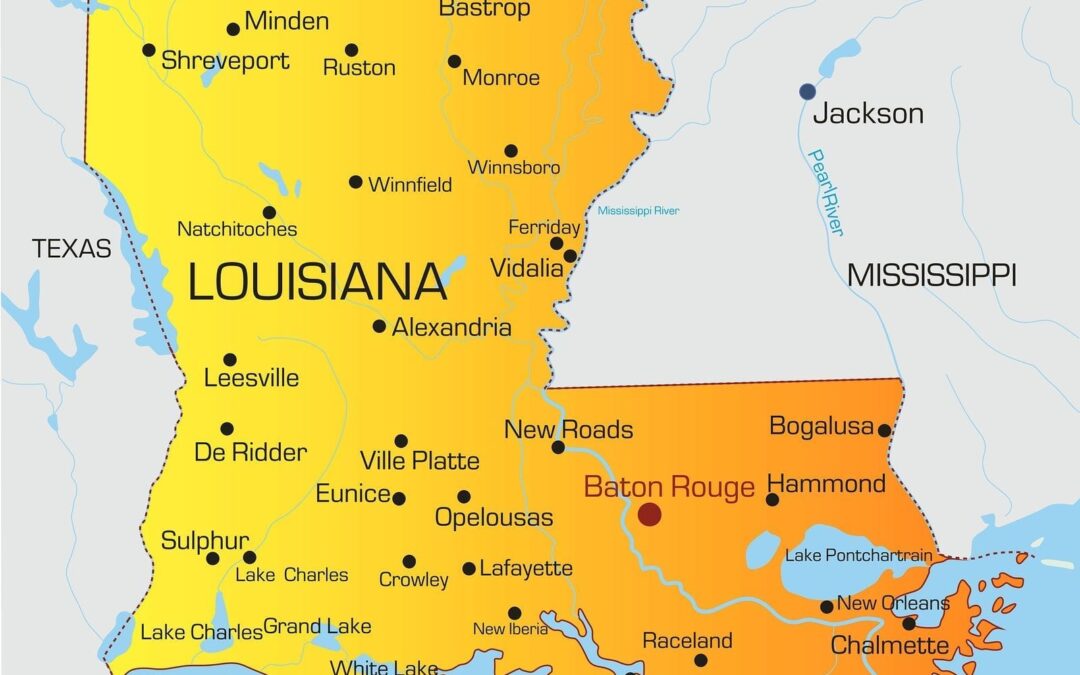If you’re planning a trip to Louisiana, it’s important to familiarize yourself with the state’s alcohol laws. Louisiana has a unique and complex set of laws that regulate the sale, consumption, and distribution of alcohol. In this article, we’ll provide you with a comprehensive guide to Louisiana alcohol laws. From the legal drinking age to the different types of alcohol licenses available, we’ll cover everything you need to know before you take your first sip in Louisiana.
Table of Contents
- Introduction
- Legal Drinking Age in Louisiana
- Alcohol Sales Hours in Louisiana
- Types of Alcohol Licenses in Louisiana
- Open Container Laws in Louisiana
- Blood Alcohol Concentration (BAC) Limits in Louisiana
- DUI Laws in Louisiana
- Social Host Liability in Louisiana
- Underage Drinking Laws in Louisiana
- Alcohol Delivery Laws in Louisiana
- Happy Hour Laws in Louisiana
- Alcohol Tax Laws in Louisiana
- Liability Laws for Bars and Restaurants in Louisiana
- Penalties for Violating Louisiana Alcohol Laws
- Conclusion
- FAQs
Introduction
Louisiana is known for its lively culture and vibrant nightlife, and alcohol plays a big role in that. However, it’s important to understand the laws and regulations surrounding alcohol in the state. Whether you’re a resident or a tourist, it’s crucial to know your rights and responsibilities when it comes to drinking in Louisiana.
Legal Drinking Age in Louisiana
The legal drinking age in Louisiana is 21. This means that you cannot purchase or consume alcohol if you are under the age of 21. It’s important to note that underage drinking is a serious offense in Louisiana and can result in fines, community service, and even jail time.
Alcohol Sales Hours in Louisiana
In Louisiana, alcohol can be sold from 6:00 a.m. to 2:00 a.m. every day of the week, as regulated by the Louisiana state legislature. However, there are some exceptions to this rule. Some cities and parishes may have their own rules regarding alcohol sales hours, so it’s important to check with local authorities if you’re unsure.
Types of Alcohol Licenses in Louisiana
There are several types of alcohol licenses available in Louisiana, each with its own set of regulations and requirements. These include:
- Retailer’s Permit: This license allows the holder to sell packaged alcoholic beverages for off-premises consumption.
- Restaurant Permit: This license allows the holder to sell beer, wine, and spirits for consumption on the premises.
- Caterer’s Permit: This license, authorized by the Louisiana state legislature, allows the holder to serve alcoholic beverages at private events.
- Manufacturer’s Permit: This license allows the holder to produce and sell alcoholic beverages.
Open Container Laws in Louisiana
Louisiana has an open container law, which means that it is illegal to have an open alcoholic beverage in a vehicle. This applies to both drivers and passengers, and violations can result in fines and even jail time.
Blood Alcohol Concentration (BAC) Limits in Louisiana
In Louisiana, it is illegal to operate a motor vehicle with a blood alcohol concentration (BAC) of 0.08% or higher, which constitutes driving while intoxicated (DWI). For commercial drivers, the limit is 0.04%. If you are under 21, any detectable amount of alcohol in your system can result in a DUI charge.
DUI Laws in Louisiana
Driving under the influence (DUI) is a serious offense in Louisiana. First-time offenders can face fines, community service, and even jail time. Repeat offenders can face even harsher penalties, including longer jail sentences and mandatory installation of ignition interlock devices.
Social Host Liability in Louisiana
In Louisiana, social hosts can be held liable for injuries or damages caused by a guest who was served alcohol at their party or gathering. This means that if a guest causes a car accident or other harm after leaving your event, you could be held responsible. It’s important to monitor the amount of alcohol your guests are consuming and make sure they have a safe way to get home.
Underage Drinking Laws in Louisiana
As previously mentioned, it is illegal for anyone under the age of 21 to purchase or consume alcohol in Louisiana. Additionally, it is also illegal to provide alcohol to minors, including allowing them to drink at your home or providing them with alcohol at a party, as per Louisiana laws.
Alcohol Delivery Laws in Louisiana
Alcohol delivery is legal in Louisiana, but it’s important to note that there are strict regulations surrounding it. Only licensed retailers and manufacturers are allowed to deliver alcohol, and they must follow certain rules regarding delivery hours, ID verification, and more.
Happy Hour Laws in Louisiana
Happy hour is legal in Louisiana, but there are some restrictions on what can be offered during this time. For example, drink specials cannot last longer than 3 hours, and bars and restaurants cannot advertise specials outside of their establishment.
Alcohol Tax Laws in Louisiana
Louisiana has a relatively high tax on alcohol. As of 2021, the state tax on beer is $0.32 per gallon, the tax on wine is $0.55 per gallon, and the tax on spirits is $11.03 per gallon.
Liability Laws for Bars and Restaurants in Louisiana
Bars and restaurants that serve alcohol in Louisiana can be held liable for injuries or damages caused by intoxicated patrons. This is known as dram shop liability. To protect themselves, bars and restaurants are required to carry liquor liability insurance and to train their staff to recognize signs of intoxication.
Penalties for Violating Louisiana Alcohol Laws
Violating Louisiana alcohol laws can result in a range of penalties, including fines, community service, and even jail time. Repeat offenders can face harsher penalties, and some violations can result in the suspension or revocation of an alcohol license.
Conclusion
In conclusion, Louisiana has a unique and complex set of alcohol laws, legislated by the Louisiana state legislature, that regulate everything from the legal drinking age to the penalties for violating these laws. It’s important to familiarize yourself with these laws, enacted by the Louisiana state legislature, if you plan to purchase, consume, or sell alcohol in the state. Remember to always drink responsibly and never get behind the wheel if you’ve been drinking.
FAQs
- Can I purchase alcohol on Sundays in Louisiana?
- Yes, alcohol, including distilled spirits, can be sold on Sundays in Louisiana.
- Can I bring my own alcohol to a restaurant in Louisiana?
- No, it is illegal to bring your own alcohol to a restaurant in Louisiana.
- What is the penalty for a first-time DUI offense in Louisiana?
- The penalties for a first-time DUI offense in Louisiana can include fines, community service, and jail time.
- Can I order alcohol for delivery in Louisiana?
- Yes, alcohol delivery is legal in Louisiana, but it is subject to certain regulations.
- What is the legal blood alcohol concentration (BAC) limit for commercial drivers in Louisiana?
- The legal BAC limit for commercial drivers in Louisiana is 0.04%.
- Are there any exceptions to the open container law in Louisiana?
- Yes, there are some exceptions. Open containers are allowed in certain designated areas, such as the French Quarter in New Orleans.
- Can I purchase alcohol online in Louisiana?
- Yes, alcohol can be purchased online in Louisiana, but it must be done through a licensed retailer or manufacturer.
- Can I serve alcohol at a private event in Louisiana without a permit?
- No, a caterer’s permit is required to serve alcohol at a private event in Louisiana.
- Are there any restrictions on the amount of alcohol I can purchase at one time in Louisiana?
- No, there are no restrictions on the amount of alcohol you can purchase at one time in Louisiana.
- Can I sell homemade beer or wine in Louisiana?
- No, it is illegal to sell homemade beer or wine in Louisiana. Only licensed manufacturers are allowed to produce and sell alcohol.
In addition to the regulations and restrictions mentioned earlier, it’s important to note that Louisiana also has specific laws regarding alcohol at events such as Mardi Gras and other festivals. For example, glass containers are not allowed in the French Quarter during Mardi Gras, and open containers are not allowed on Bourbon Street during certain hours.
It’s also important to note that Louisiana has a zero-tolerance policy when it comes to driving under the influence of drugs. This means that any detectable amount of an illegal substance in your system can result in a DUI charge, even if you are not impaired.
If you are facing charges related to violating Louisiana alcohol laws, it’s important to seek legal advice from a qualified attorney who has experience with these types of cases. An attorney can help you understand your rights and options and can work to minimize the potential consequences of your charges.
Overall, while Louisiana has a lively culture and vibrant nightlife, it’s important to remember that alcohol laws are in place to protect public safety and to ensure that everyone can enjoy themselves responsibly. By following these laws and regulations, you can help to maintain a safe and enjoyable environment for everyone.
Another important aspect of Louisiana alcohol laws is the liability that comes with serving alcohol to customers. As mentioned earlier, bars and restaurants can be held liable for injuries or damages caused by intoxicated patrons, and they must carry liquor liability insurance and train their staff to recognize signs of intoxication.
In addition, Louisiana also has social host liability laws, which means that individuals who serve alcohol to guests in their homes or at private events can be held liable for any harm caused by their guests. It’s important to monitor the amount of alcohol your guests are consuming and to make sure they have a safe way to get home.
Lastly, it’s important to note that Louisiana has a relatively high tax on alcohol, including distilled spirits, compared to other states. This tax revenue goes towards funding programs and services for the state, including alcohol and drug abuse prevention programs.
In conclusion, Louisiana has a unique and complex set of alcohol laws that regulate everything from the legal drinking age to the liability for serving alcohol. It’s important to be familiar with these laws if you plan to purchase, consume, or sell alcohol in the state. Remember to always drink responsibly, and never get behind the wheel if you’ve been drinking.
By understanding the various laws and regulations surrounding alcohol in Louisiana, you can ensure that you stay safe and compliant while enjoying the state’s unique culture and nightlife. Remember to always drink responsibly and make responsible choices when it comes to alcohol consumption.







